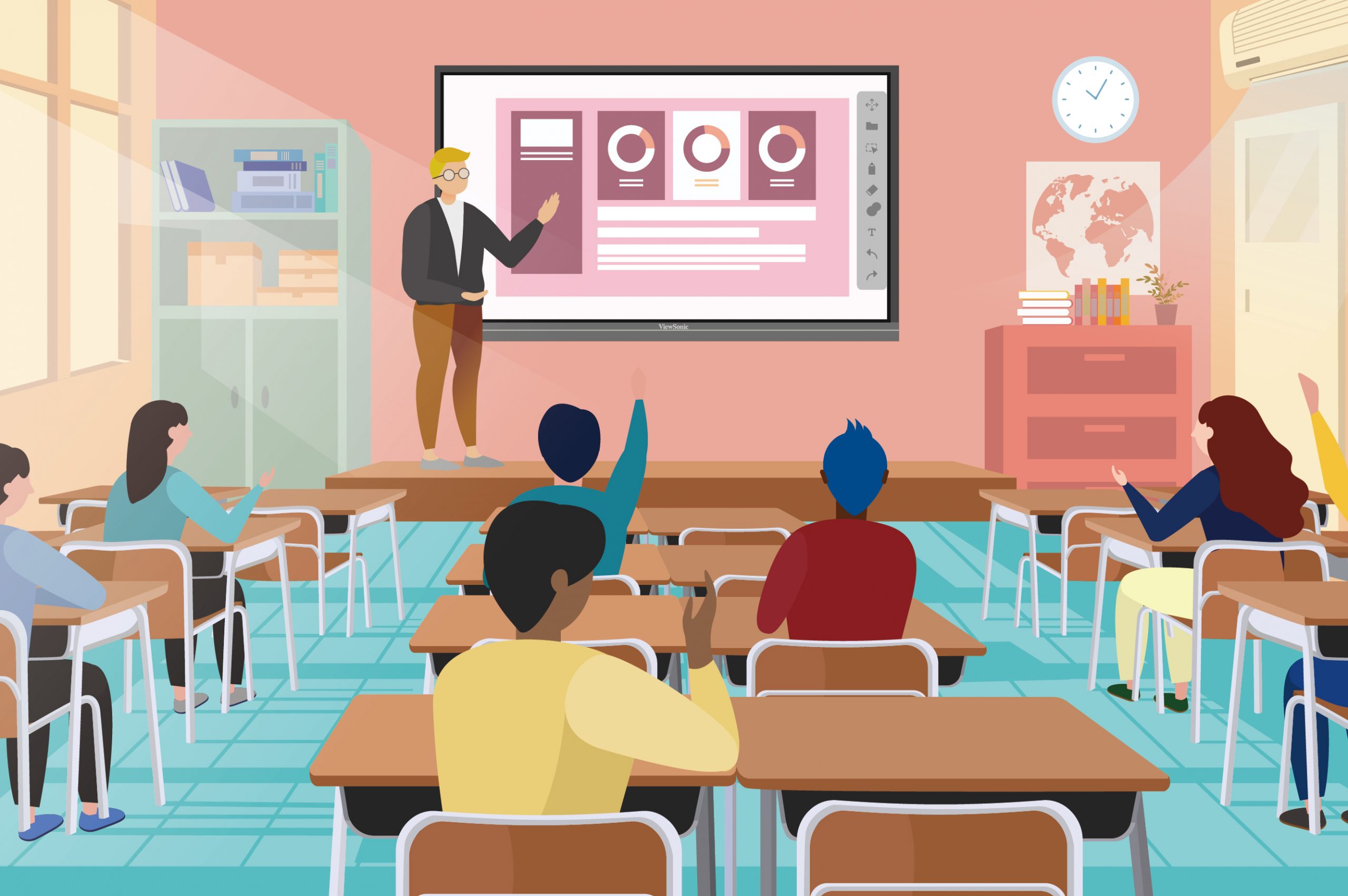Ed Tech Blog

ELA teachers face the enormous challenge of growing young writers within an extremely tight time frame—just one school year. Like the writing process itself, teaching writing is messy, non-linear, and time-consuming. Both novice and experienced teachers, though well-intentioned, often remain superficial in their writing instruction methods given the constraints of curriculum and other systemic factors. Inadequate time to provide feedback is most often cited as the culprit. Additionally, many ELA teachers find assessing writing continuously challenging.
Over the years, technology in the classroom has evolved to better support ELA teachers in developing their students’ writing abilities. Students today are certainly better equipped with digital tools, sites, and apps that assist with their writing needs. Despite this, many ELA classrooms today are still not tapping into the potential of technology to enrich writing instruction and embed teacher feedback seamlessly into the process.
So, how can ELA teachers leverage technology to more effectively grow writers?
Above all else, stay rooted in pedagogy and best instructional practices. Avoid using technology just for the sake of using technology. NCTE believes that “New technologies should be considered only when it is clear how they can enhance, expand, and/or deepen engaging and sound practices related to literacies instruction.” Design the lesson around the literacy goal and then choose the technology tool to further engage students.
Consider how tech tools can support the writing process. There’s assigning writing and then there’s teaching writing. Teaching writing requires heavy modeling and guiding students through all steps of the writing process: brainstorming, drafting, revising, editing, and publishing—and not necessarily in that order.
Utilizing technology during the brainstorming phase can excite students, building energy to transfer into drafting. During a personal essay brainstorm, teachers may ask students to curate a collage of pictures on Padlet of people and places of significance...
Read more: Using Technology to Grow Writers in the ELA Classroom

Living in the 21st Century, the term ‘’STEM/STEAM’’ is no longer unfamiliar. Now, most individuals know STEM involves skills that will take students to the next level of learning and problem-solving. It brings attention to strengthening the basic skills that can groom an individual and prepare them to manage real-life problems (without panic!). While some educators propose the idea of dedicated time slots for STEM activities, I disagree with them. Because the purpose of integrating STEM becomes meaningless if we still treat it as a separate entity; rather, it should be a foundation for everyday lesson planning and class activities! For that, the role of the teacher becomes most significant as a moderator to direct the student’s energies and strengths to achieve a collective goal. So, teachers, are you ready?
To highlight the major focus of STEM integration into the classroom, Dare and colleagues (2021) quoted the idea of the 4 C’s- Critical thinking, Creativity, Communication, and Collaboration- as the skills which support student empowerment. Integration of STEM in the classroom stimulates problem-solving, identifying alternatives to a common problem, reaching out, and working in a team to achieve a common goal utilizing the applied skills of the 4 C’s. Making...
Introduction
Learning management systems are a trending topic with the advent of online learning. But you may be wondering how they work and how they can benefit your classroom or enhance your existing curriculum. In this post, we’ll delve deep into what LMSs are and how they could be useful for your learning environment. Let’s get started!
What Are LMSs?
Popularized in higher education, and now making their way to K-12, learning management systems provide institutions a digital space to do everything from documenting and tracking to providing online education and training to teachers. Often abbreviated simply as an LMS, learning management systems for schools utilize software to deliver classes, lessons, or training programs completely online.
A learning management system (LMS) is a software application used to manage, document, track, report, automate, and deliver education courses, training programs, or training and development programs. A Learning Management System (LMS) is a web-based integrated software used to create, deliver, track, and report on education courses and outcomes.
A learning management system (LMS) is a platform that helps instructors to manage and organize educational materials on the web, as well as run online courses. A learning management system is a software program used...

If there is one effective way of bridging the distance between language learners sitting in a classroom and real-world practice of the language without even traveling a mile–it is technology.
Apps, digital tools, online platforms, and other instructional technologies have forever changed how we learn and teach world languages.
So, if you are reluctant about using online tools in your language classroom or get overwhelmed by them, I invite you to reconsider. We can make technology serve us in simple ways and enrich the learning process for everyone involved. Numerous studies speak to the benefits of technology in language learning both for students and educators.
Joe Dale, a language consultant and technology expert in the UK, emphasizes that we can use technology to enhance language learning. And what’s a better way to do it than have students put their skills into practice in authentic and real-world learning environments?
Here are a few educational technologies to include in your language courses and enhance authentic learning for students.
Live Conversations
Live conversation platforms such as LinguaMeeting and TalkAbroad allow students to practice their speaking skills with language coaches from selected countries. Could it get more authentic? You can opt for one-on-one...
Read more: 6 Online Tools to Enhance Authentic Learning in Language Classrooms

Traditional doctrine in the educational system is to create good computer programmers by teaching traditional computer science and first making students computer scientists, which is not really needed to learn how to code and make good computer programmers. Usually, a part of that method involves burdening students with difficult advanced math requirements not usually included in standard K-12 curricula.
Most standard math classes will not help prepare students to learn to code. This obligates teachers planning to teach students to code in a traditional computer programming course to teach the math and logical concepts required by computer programmers first. These include binary and bitwise operations, hexadecimal (also known as hex code) and octal, which only uses 0 through 7, for a base 8 system.
Standard math courses also don’t teach students to start counting from 0 up to 9 in our standard system of counting and decimal system. However, they really should if they want more students to understand how to program a computer. To this end, understanding the concepts taught in math is actually far more important than learning to quickly and accurately calculate the correct answers to math problems with your own human brain in the approved way. The ability...

A great majority of educational researchers’ time and energy is devoted to pinpointing the most effective methods of teaching and learning, with priority being given to the latter. In turn, it is of no surprise that researchers have devoted, and continue to devote, time and energy to identifying aspects of the physical environment of classrooms that enhance effective teaching and learning. The problem, however, is that those in the field of education (i.e. teachers, administrators, school boards, school building designers) often are not aware of how aspects of a school’s physical environment affect student learning. Following this line of thinking, the purpose of this research post is (1) to identify the factors of the physical environment that have been shown via educational research to influence classroom learning (either negatively or positively) and (2) to identify what findings regarding the physical environment’s effect on learning would be useful to teachers, administrators, school boards and school designers. Once these factors and findings are identified, they can be examined more deeply to determine which should be prioritized for the greatest effect on student learning. Recommendations for such prioritization are provided based on the conclusions of this research.
Factors that Influence Classroom Learning
A...
Read more: Impacts of the Physical Environment on Classroom Learning - Part 1
